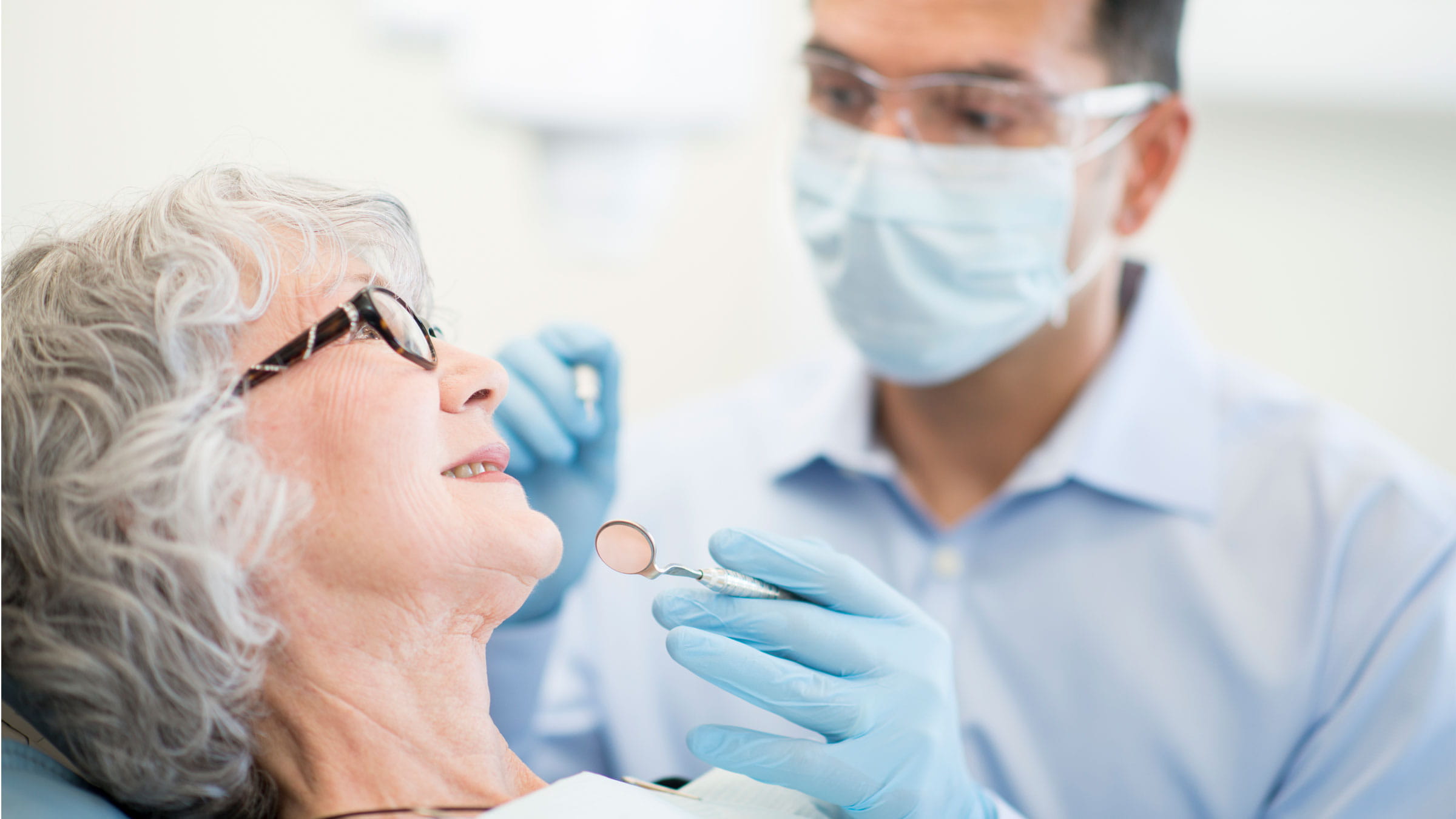
A couple of generations ago when you reached your early sixties, more often than not, you’d have a glass carrying your dentures at your bedside.
It was the norm back then to lose all your natural teeth. Now we’re living longer and our teeth are with us for the duration. That six-year molar that came in when you were in first grade now is expected to last for 80 years or more. That’s fortunate for us because false teeth have only about 20% of the chewing power of your natural set of teeth.
Fewer people now need false teeth because fluoride was added to the public water system in the early 1960s, and since then people have also become more committed to good oral hygiene. They’re more aware of what can happen if they don’t take care of their teeth.
What happens to your teeth as you get older?
As you age, so do your teeth. They can start to turn yellow as the enamel, the white, hard coat protecting them, thins, making the yellow core material called dentin inside the teeth more visible. The changes may not just be cosmetic. As the enamel wears off, teeth can also become more susceptible to tooth decay and sensitive to hot, cold or spicy food or drinks.
If you clench or grind your teeth during the day or at night in your sleep, that too can wear down the enamel and cause cracks in teeth.
At what age do your teeth begin to deteriorate?
Our teeth begin to feel the effects of bacteria, acids and wear as soon as they come in when we are children. That’s why building healthy habits in children is so important. We may not see damage early, but the cumulative effects of poor oral hygiene magnify over time.
How can I slow the aging process on my teeth?
The best way is through good oral hygiene and preventive care. Your dentist and their team can help design a plan that works for you specifically, but we all can benefit from remembering to:
- See your dentist about any issues with your teeth as soon as possible — cavities don’t get better with time.
- Brush your teeth twice a day with a fluoride toothpaste (look for the ADA Seal of Acceptance)
- Floss once a day to clean between your teeth
- Eat a healthy diet and drink a lot of water
- See your dentist regularly — every six months for many people, more often for those with gum or mouth diseases
Why is drinking water important for healthy teeth?
Water helps produce saliva, which neutralizes acids in the mouth. Those acids are created when bacteria in your mouth breaks down sugars. Acid can dissolve tooth enamel, which protects teeth from decay. So when you drink water, you can create more saliva, and if that water contains fluoride, that also makes teeth stronger and more resistant to acid.
What does clenching or grinding your teeth do to them over time?
Clenching and grinding teeth, either at night or during the day, increases the wear and tear on your teeth. On a normal day, we may be chewing, at most, for an hour at a time. If you’re grinding your teeth for say five hours at night, that’s more stress on your teeth. And by wearing down the tooth as well as the enamel, the grinding or clenching can cause teeth to become sensitive or develop cracks. Headaches and jaw pain can also occur.
Since the pandemic began, I’ve seen more and more patients needing night guards to cushion their teeth because they clench or grind them, unconsciously, at night or during the day. In recent years, I’ve made more mouth guards for people who grind or clench their teeth than I ever have. The pandemic may have brought on an additional layer of stress that’s showing up in some people’s teeth.
Why do people grind or clench their teeth at night?
Clenching or grinding your teeth is the body’s fight or flight response to stress. In your sleep, when you think of something that triggers anxiety, the body releases energy, which allows you to attack or escape the threat, thus getting rid of that energy. But since the threat is only in our mind and not a threat you need to physically fight off, that energy remains. As a result, some people’s jaw muscles contract, releasing the energy by locking down or grinding. Putting a night guard in your mouth before you fall asleep can help protect your teeth from being worn down.
It's important not to just accept this clenching and grinding as normal. Your dentist can help design a program that works for you to protect your teeth and help you get a restful night’s sleep!
How can someone who unconsciously grinds or clenches their teeth stop?
Exercise and yoga can help relieve anxiety, and good sleep habits are also important. That includes no caffeine or alcohol after dinner and reducing time on a computer screen and phone screens before bed. The blue light that electronic devices give off can make you feel more alert rather than ready to fall asleep.

Healthy teeth start here
Ohio State offers complete general and specialty dental care, including emergency care for patients of all ages.
Schedule an appointment




